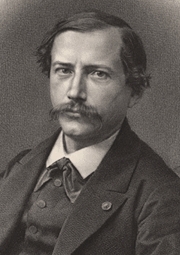On this date (some sources give Oct. 29) in 1827, Pierre Eugène Marcellin Berthelot was born in Paris, the son of a doctor. Educated at Lycée Henri-IV, Berthelot became professor of chemistry at the School of Pharmacy in 1859, where he completed his greatest work in 1860, the two-volume Chimie organique fondee sur la synthese (organic chemistry based on synthesis), the basis of modern organic chemistry.
Berthelot was one of the first to produce organic compounds synthetically. He argued and demonstrated that chemical phenomena are not governed by any peculiar law subject only to chemicals. The College de France created a chair of organic chemistry for him in 1865. He was admitted to the Academy of Sciences in 1873. He received the Legion of Honor in 1886 and was made perpetual secretary of the Academy of Sciences in 1889, succeeding Louis Pasteur.
An honorary associate of the Rationalist Press Association, “He would listen to no compromise whatever with religion,” wrote freethought historian Joseph McCabe, referring to Berthelot’s Science et Morale (1897) and Science et Libre Pensee (1905). He died soon after his wife Sophie and was buried with her in the Panthéon in 1907. They had six children.


